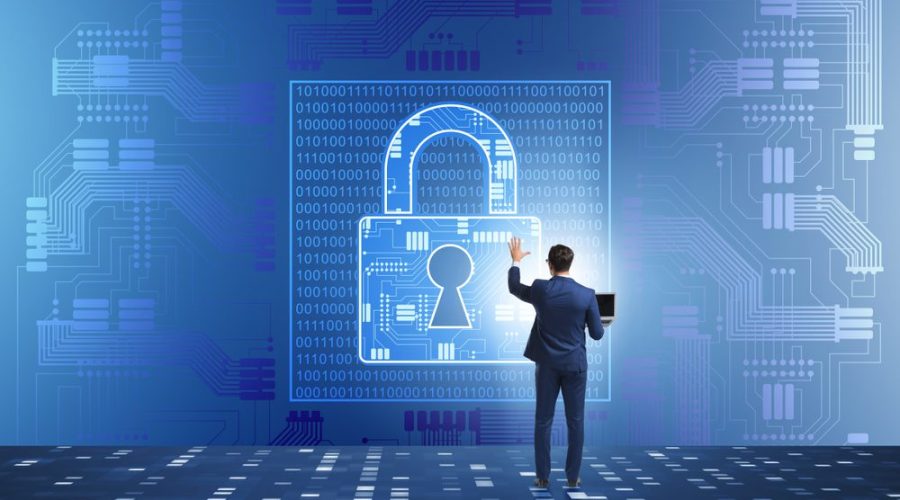Understanding the Role of a Cyber Security Defender
So, you’ve heard the term “cyber security.” It’s everywhere, right? News headlines scream about data breaches, ransomware attacks holding companies hostage, and shadowy figures stealing personal information. It can sound like something straight out of a spy movie. But behind all the drama, there’s a crucial group of people working tirelessly to keep that chaos at bay: the cyber security defenders.
A Cyber Security Defender is a professional responsible for safeguarding an organization’s digital assets – their networks, data, systems, and even their reputation from cyber threats. This role involves proactive measures. They’re the ones who stand watch, identify threats, and act decisively to neutralize them before they can cause harm. The primary objective is to ensure the confidentiality, integrity, and availability of information systems.
Key Responsibilities
What does this actually look like on a day-to-day basis? Well, it’s definitely not a boring desk job. It’s a dynamic and ever-evolving field that demands constant learning and adaptation. On any given day, a cyber security defender might be:
- Monitoring security systems: Imagine a digital radar screen, constantly scanning for anomalies and suspicious activity. Defenders use sophisticated tools to track network traffic, identify unusual login attempts, and look for tell-tale signs of an intrusion.
- Analyzing potential threats: When something suspicious pops up, it’s the defender’s job to investigate. Is it a false alarm? Or is it a genuine threat? This involves digging into logs, analyzing malware samples, and understanding the tactics that attackers use.
- Implementing security measures: Defenders are the architects and builders of an organization’s digital defenses. They might be configuring firewalls, setting up intrusion detection systems, implementing encryption protocols, and ensuring that security policies are being followed.
- Responding to incidents: When an attack does happen (and unfortunately, it’s often a matter of “when,” not “if”), defenders are the first responders. They need to act quickly and decisively to contain the breach, minimize the damage, and restore systems to normal. This can be a high-pressure situation that requires cool-headed thinking and problem-solving skills.
- Educating users: Believe it or not, one of the biggest vulnerabilities in any security system is often the human element. Defenders play a crucial role in educating employees about phishing scams, password security, and other best practices to create a more security-aware culture.
- Staying ahead of the curve: The cyber threat landscape is constantly changing. Attackers are always developing new techniques and exploiting new vulnerabilities. A good defender is a lifelong learner, constantly researching the latest threats, attending training, and staying up-to-date on industry best practices.
Essential Skills for a Cyber Security Defender
To excel in this role, a Cyber Security Defender must possess a diverse skill set that combines technical expertise with analytical thinking and even some soft skills.
- Technical Skills: Defenders need a solid understanding of networking principles, operating systems, security technologies (like firewalls, intrusion detection systems, and antivirus software), and ideally, some experience with scripting or programming. Familiarity with cloud security and mobile security is also becoming increasingly important.
- Analytical and Problem-Solving Skills: Cyber security is often about piecing together clues and solving puzzles. Defenders need to be able to analyze data, identify patterns, and think critically to understand the root cause of security incidents and develop effective solutions.
- Attention to Detail: A tiny anomaly in a log file or a seemingly innocuous email could be the first sign of a major attack. Defenders need to be meticulous and have a keen eye for detail to spot these subtle indicators.
- Communication Skills: Being able to explain complex technical concepts to non-technical audiences is crucial. Defenders need to communicate effectively with colleagues, management, and even sometimes law enforcement.
- Problem-Solving Under Pressure: When an attack is underway, time is of the essence. Defenders need to be able to stay calm, think clearly, and make quick decisions in high-pressure situations.
- A Passion for Learning: As we mentioned before, the cyber security landscape is constantly evolving. A successful defender has a genuine curiosity and a drive to continuously learn and adapt.
This list is not exhaustive, and the specific skills required can vary depending on the specific role and organization. However, it highlights the breadth and depth of knowledge expected of a cyber security defender.
The Diverse Roles Within Cyber Security Defense
The term “cyber security defender” encompasses a wide range of specialized roles, each with its own focus and responsibilities. Some common roles include:
- Security Analyst
Often serving as the first line of defense, Security Analysts monitor networks and systems for suspicious activity. They analyze logs, investigate alerts, and respond to potential security incidents. Their job is to catch threats early and initiate the appropriate countermeasures.
- Security Engineer
Security Engineers are responsible for designing, building, and maintaining the security architecture of an organization. They implement protective technologies such as firewalls, intrusion detection systems, and endpoint protection platforms, ensuring all components of the infrastructure are secure and compliant. - Penetration Tester (Ethical Hacker)
Penetration Testers, also known as Ethical Hackers, simulate cyberattacks to identify vulnerabilities before malicious actors can exploit them. Think of them as digital locksmiths, hired to pick the locks before the criminals do. They play a critical role in proactively strengthening an organization’s defenses.
- Incident Responder
Incident Responders are the rapid response unit of a cyber security team. When a breach occurs, they move quickly to contain the threat, minimize damage, and begin the recovery process. Their expertise lies in forensics, threat containment, and restoring systems to normal operations. - Security Architect
These are the visionaries who design an organization’s overall security framework. Security Architects take a high-level view of the organization’s systems and craft a strategic plan to protect them from evolving threats. They work closely with both technical and executive teams to align security with business objectives.
- Security Consultant
Security Consultants act as trusted advisors, offering expert guidance on best practices, regulatory compliance, and threat mitigation strategies. They often work with multiple clients or organizations, providing tailored solutions to enhance each entity’s security posture.
Each of these roles plays a vital part in the overall defense strategy, contributing their unique skills and expertise to protect against cyber threats. The specific role you might be interested in will depend on your skills, interests, and career goals. But the underlying principle remains the same: to protect and defend.
Education and Career Development
If you’re aspiring to become a cyber security defender, there are various pathways to enter this dynamic and crucial field. A strong foundation in computer science, information technology, or a related field is often beneficial. Relevant certifications, such as CompTIA Security+, Certified Ethical Hacker (CEH), CISSP, and others, can demonstrate expertise and enhance career prospects. Beyond formal education and certifications, practical experience gained through internships, entry-level security roles, or participation in capture-the-flag (CTF) competitions can significantly boost your qualifications and provide real-world skills.
Continuous learning is important in cyber security. Staying updated with the latest threats, technologies, and best practices through industry publications, conferences, and online resources is essential for professional growth. Many organizations also offer internal training and development programs to help their security teams stay ahead of the curve. Furthermore, networking with other professionals in the cybersecurity community can provide valuable insights, mentorship opportunities, and awareness of job openings. Engaging in online forums, attending local meetups, and participating in industry associations can broaden your professional circle and contribute to your career advancement.

Why should you consider becoming a cyber security defender? Well, for starters, it’s a field with incredible demand. As our world becomes increasingly digital, the need for skilled security professionals is only going to grow. This translates into excellent career opportunities and competitive salaries.
But beyond the job security and financial rewards, there’s a real sense of purpose that comes with being a cyber security defender. You’re not just pushing papers or crunching numbers; you’re actively contributing to protecting individuals, organizations, and even critical infrastructure from malicious attacks. You’re playing a vital role in maintaining the security and trust of the digital world.
It’s also a field that offers continuous intellectual stimulation. You’ll constantly be challenged to learn new things, solve complex problems, and adapt to the ever-changing threat landscape. If you’re someone who enjoys a good puzzle and thrives on challenges, cyber security could be a perfect fit.
And let’s be honest, there’s a certain cool factor to it, right? Being the person who can outsmart cybercriminals and protect valuable data? It’s like being a digital detective or a high-tech bodyguard.
The demand for cyber security professionals continues to outpace the supply, making it a promising career path with excellent growth potential. As organizations increasingly rely on digital technologies, the need for skilled defenders to protect their assets will only intensify.
eStreet Security is committed to assisting organizations in the development and maintenance of resilient applications. Our comprehensive suite of services and resources is designed to enhance your cybersecurity capabilities. Whether your objective is to strengthen your cyber security defender teams or to obtain expert support in securing critical defense infrastructure, eStreet Security serves as a reliable partner.
Pursue a fulfilling career in cyber security defense. We invite you to visit www.estreetsecurity.com to learn more about how eStreet Security can contribute to your secure future in the digital environment.

Join the Ranks of Cyber Security Defenders
If you are driven by a passion for problem-solving, a commitment to protecting the digital realm, and a desire to make a real-world impact, then the path of a cyber security defender beckons. The challenges are significant, but the rewards of contributing to a more secure digital future are even greater.
Ready to take the first step in your journey to becoming a cyber security defender? Visit us to explore resources, and career opportunities that can help you forge your path in this vital field.
Learn more about the evolving threat landscape and how cyber security defenders are adapting. Explore our insights at www.estreetsecurity.com
Are you an organization looking to strenghten your defenses? Discover how our expert cyber security defenders can protect your valuable assets. Contact us today! through www.estreetsecurity.com.




